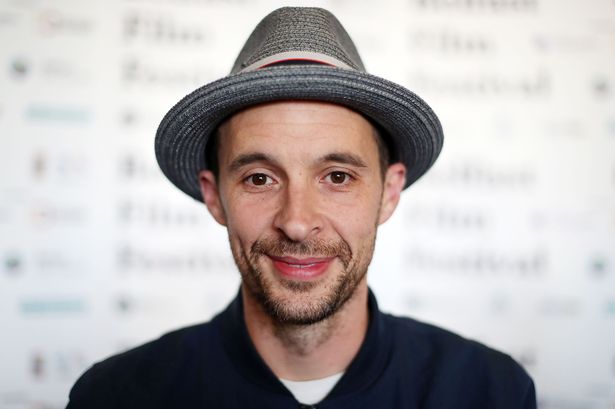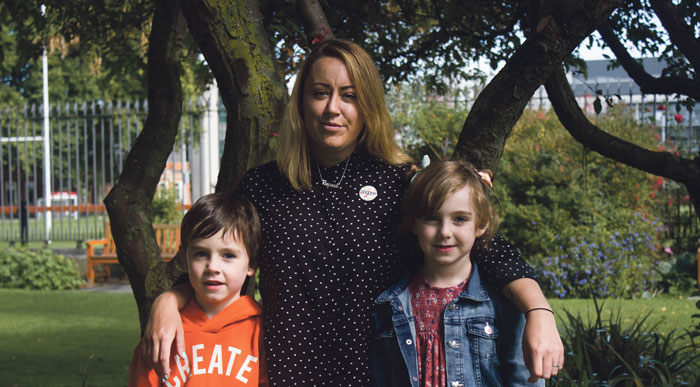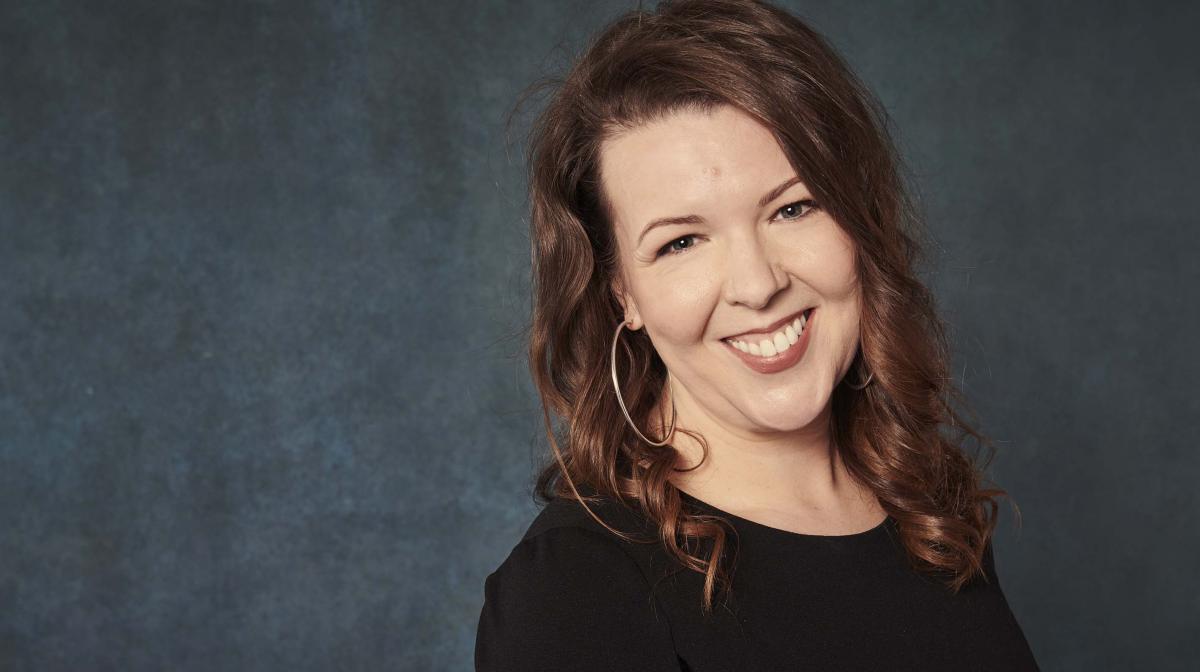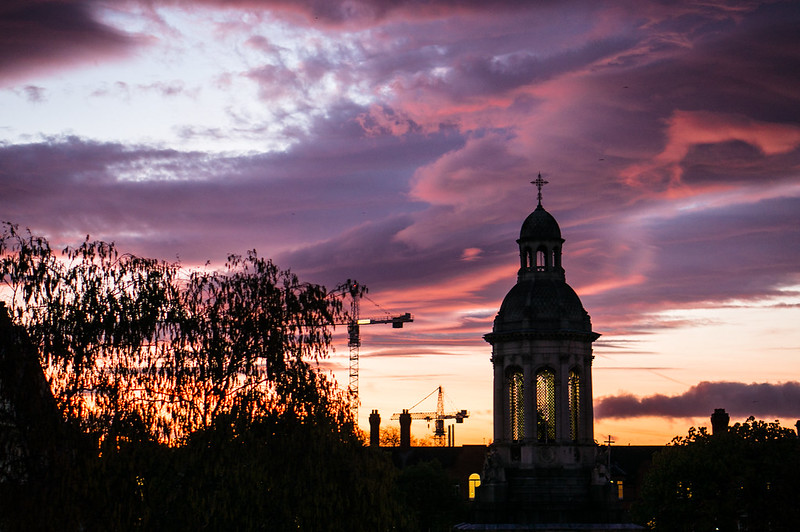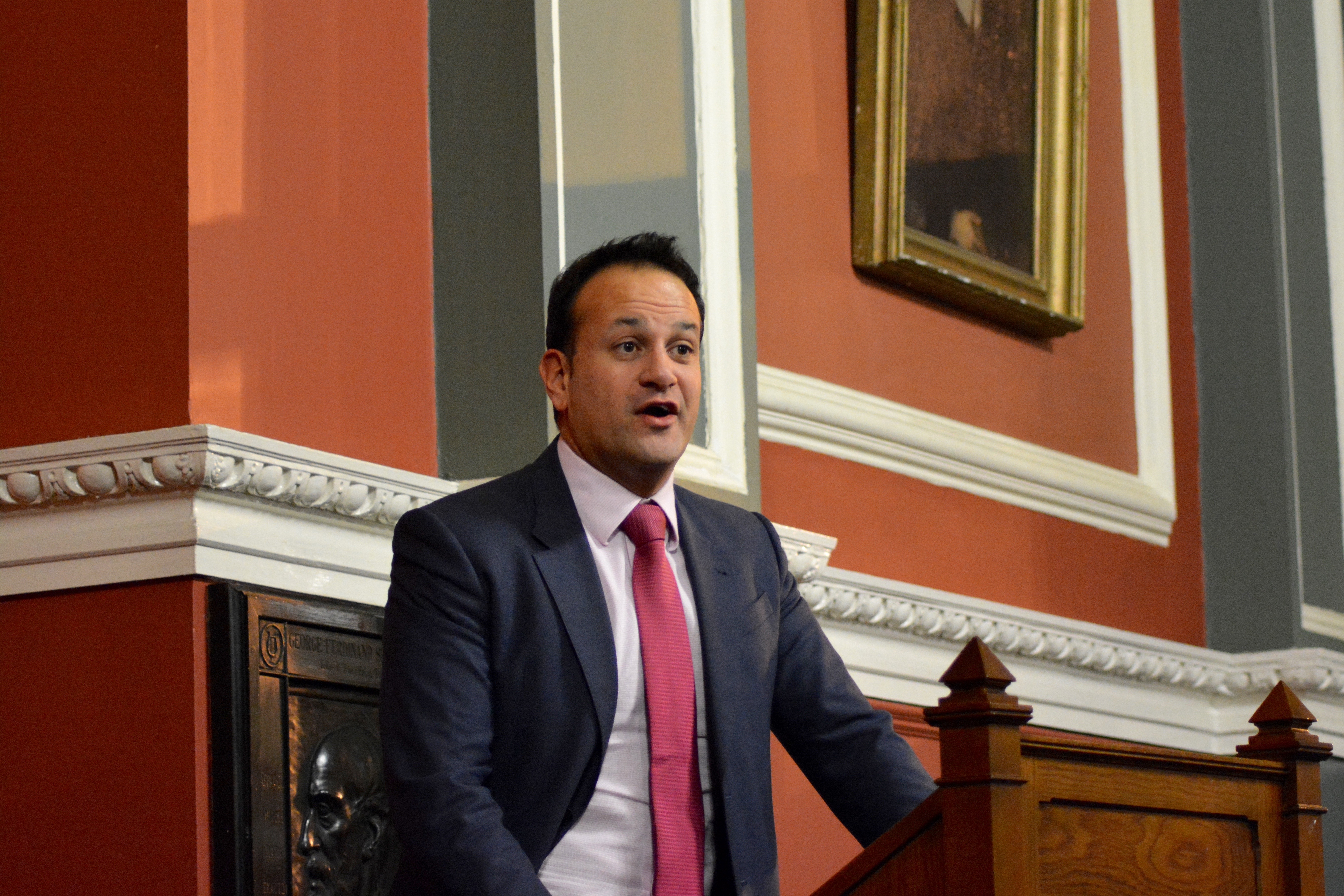It’s true that the legendary Tom Vaughan-Lawlor – or “Nidge” to any of you who gave up on cable television the second Love/Hate didn’t return for a sixth season – never misses a beat on stage or on screen. His first day of college, however, was a very different story. In conversation with The University Times, the ever-rising star revisits the sensation of “literally and slightly metaphorically arriving late to the party”.
Vaughan-Lawlor secured a place studying Philosophy at the then Milltown Institute of Theology and Philosophy in first round CAO offers, but with a rechecked paper falling in his favour, he gained enough points to enrol in Drama Studies and Classics in Trinity on the Thursday of freshers week. “By the time I got there on Thursday – may even have been the Friday morning – of freshers week, it was like arriving at a house party at five o’clock in the morning and everyone is in pieces”, he recalls with a grin. As the surrounding hangovers subsided, these initial days became increasingly “exciting and daunting and thrilling and inspiring” for the young Dubliner, who felt honoured in many ways to be studying between walls he had gazed up at so often.
A self-professed daydreamer, the young Vaughan-Lawlor had many rose-tinted notions of the Trinity student experience, but two things in particular caught him by surprise. “One, the incredible intelligence of some people, like off-the-chart ability, especially in drama, to interpret things and to read into things”, he effuses. “The level of brightness of some people just knocked me sideways.” Secondly, “watching people argue passionately about plays I knew they hadn’t read” – a phenomenon he would thenceforth refer to as “the art of bullshit” – often left Vaughan-Lawlor grappling with a bubbling belly laugh mid-seminar. “It’s amazing what you can get away with just on fucking neck and bullshit and buzzwords” he marvels, before confessing, that in the years since, he has ruefully dabbled in the craft on occasion.
By the time I got to Trinity on the Thursday of freshers week, it was like arriving at a house party at five o’clock in the morning and everyone is in pieces
Above all though, it was the sheer ability of the teaching staff that truly blew him away. “We would debate about plays or discuss productions we’d seen and then the tutor would sum up their interpretation of play, and you’d just be like, ‘Wow’, their ability to see the depths in art was just mind-blowing and inspiring.” The teaching was handed out easily, without condescension, in Vaughan-Lawlor eyes, who says, “I didn’t feel ‘less than’, I just felt inspired by it”.
This may seem surprising to some, but the award-winning actor initially inclined towards academics, and found the performative aspects of his degree “very intimidating” early on. “Intimidating” is a word which seems to creep into our conversation time and again, particularly in relation to DU Players. “In four years, I did two shows in Players and they were both in the first year”, Vaughan-Lawlor states. “Players, I found scary and intimidating.” To begin unravelling these old emotions, the conscientious character actor turns firstly to look inside of himself: “I think as a natural introvert, it can be hard to put your foot inside a door where there’s a lot of extroverts or seeming extroverts or people who are projecting confidence – in some cases, absolute confidence, and in other cases, confidence because they’re trying to figure out who they are.” Given that the word “theatre” hangs above the door, spaces such as this one often attract loud characters who relish in theatrics and drama, Vaughan-Lawlor reasons. This, he says, can prove problematic for the artform because “actually, artists can come and can be the quietest person in the room… the quietest voice in the room that actually needs [to be] listened to”. As we delve into discussions of this “quietest voice” and the notion of acting as the “shy man’s revenge”, there is a real feeling that, for Vaughan-Lawlor, we’re moving ever closer to home.
Despite his peripheral engagement, Vaughan-Lawlor enjoyed the society and its productions as a source of incredible excitement and inspiration. “The ambition and the reach and the boldness of the choices of plays and the performances” had a lasting impact on him, and granted, he says, some productions may have been “rough around the edges”, but they “had great integrity and great passion and great vision – like amazing vision”.
I think as a natural introvert, it can be hard to put your foot inside a door where there’s a lot of extroverts or seeming extroverts or people who are projecting confidence
His admiration for such productions made him increasingly critical of the “stand-off” between the society and the drama department, which, he says, “was a big thing” at the time. “I think it was just that people were allowed to take risks in Players that the drama department didn’t seem to encourage you to do. I just thought, there’s a missed opportunity here, that actually the drama department and Players should coalesce a bit more and actually find inspiration from each other.” Though he thought fondly of the department, having gained a great deal of learning and experience at their hands, Vaughan-Lawlor found their “slight suspicion of the practical nature of Players” and their productions “a bit, kind of, regressive and a bit stupid to be honest, and just slightly precious”. In essence, it was something he “never really understood”.
As a clearer picture of Vaughan-Lawlor as a fresher begins to take shape, I’m curious to know how the same man, many years on, envisions his younger self. “Well, you know, my perception of myself and other people’s perception of me, at that time could have been different, but my own perception of myself is slightly adrift and slightly uncertain”, he expresses candidly.
So, how then does a drama and classics student, peripheral to DU Players and feeling somewhat adrift, spend his time? “Photocopying was the big thing”, it seems. “You just like photocopy and after two hours of photocopying, you’re like “awh I’m so tired, I’ve done so much work”… let’s meet a friend and go for coffee or we’ll go and see a film or… you know?” And when the photocopier was otherwise engaged, a young Vaughan-Lawlor could be found daydreaming on the first floor of the Berkeley. “I could spend most of [my time] just looking out the window at people walking past, people’s lives, people having coffee, people meeting and just, you know, people’s excitement and joy”, he depicts, giving me my first real glimpse into the underlying loneliness of his college years. With only 11 contact hours weekly in first year, Vaughan-Lawlor struggled with the isolation of independent study. As we circle each other, discussing its merits and drawbacks, he returns the same sentiment each time: “Independent study is so lonely. It’s just so lonely.”
Fortunately, in second year, Vaughan-Lawlor befriended his inner thespian through a number of internal department productions, which set him on course for studying at the Royal Academy of Dramatic Art in London, following graduation. “Had I not gone to drama school I think I would have just floated around”, he reflects, noting the ambiguous currency of arts and humanities degrees. “Coming out you’re like: Well, what do I do now? Do I just go back and do law?”
I think it was just that people were allowed to take risks in Players that the drama department didn’t seem to encourage you to do
The move to London, however, was about more than just career for Vaughan-Lawlor, it was about self-reinvention – a practice he had first employed as a Trinity fresher. “I just remember thinking, ‘I’ve got to reinvent myself here to survive’, and so I slightly closed a chapter in my school life and didn’t open it again, and in a way did the same going from Trinity to London.” In practice, this meant cutting people out of his life, in tune with a mantra: “I’m not gonna let who I was and how I was identified by the people in that life, identify me now in this new life.” In retrospect, he sheds real doubt on this practice, saying he doesn’t believe it’s “very healthy ultimately, because you’re still shaped and formed by the people who you’ve been friends with in school”. He also points to his personal “propensity [for] nostalgia and kind of pining for the past” which he was attempting to evade, as a possible reason for his harsh compartmentalisation. “[It] was kind of stupid, ultimately, but I know I needed to do it to, kind of, survive, you know?”
London offered Vaughan-Lawlor anonymity and a fresh start, but also a taste of the diversity so lacking from his Dublin life. “I don’t remember a single person who came from a working class background at Trinity when I was there … and there were maybe two black people”, he decides, combing back through half-memories. “When I think about it now, it just seems sad, and depressing, and a terrible shame.” London, on the other hand, introduced him to “a melting pot of all kinds of cultures and identities and sexualities”, which was “a whole other mind-blowing wake-up call” for the burgeoning performer, adrift in a sea of new characters.
For all the time that Vaughan-Lawlor spent wandering between the Berkeley bookshelves, it was the characters off the pages, walking outside the window, who left a lasting impression on the performer who now gets his kicks from trying on other people’s shoes. “The worlds inside of people’s heads is a really interesting thing I found in university”, he shares, with his earphones in and eyes closed, a world away on Zoom. “Quiet people who would talk about politics or talk about art and you would go: ‘Wow, big people, big, big minds.’ And thank God for them, you know? Thank God for big minds and progressive humanity in people’s souls.” Indeed, Vaughan-Lawlor. Thank God, indeed.
